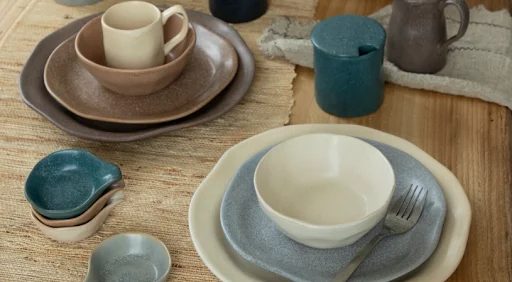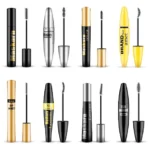Purchasing ceramic tableware wholesale can be a smart way to build your inventory, launch a retail line, or source for a hospitality business. Whether you’re buying for a restaurant, boutique store, or online shop, understanding how to evaluate quality and negotiate pricing will save you time and money—and ensure that your customers get beautiful, durable pieces. Below are essential tips to guide you through the wholesale buying process.
Discover insights that matter—check out this related post for deeper understanding.
1. Define Your Tableware Goals
Before you start reaching out to suppliers, get clear on exactly what you want to achieve:
- Purpose: Are you stocking a restaurant, or building your own retail brand?
- Target market: Do you want budget-friendly everyday dinnerware, or premium designer-quality pieces?
- Style and design: Will you go with classic white, colorful reactive glazes, or patterned dinnerware?
- Material preferences: Porcelain, stoneware, earthenware, or bone china—each has unique properties.
- Order size projections: Estimate how many sets or plates you will need right now and in the future.
Having clarity on these questions will help you evaluate suppliers more effectively and ensure you’re negotiating from an informed position.
2. Find Reputable Suppliers
Choosing the right wholesale partner is crucial. Here’s how to identify reliable ceramic tableware suppliers:
- Search established platforms and manufacturers: Look for companies with strong production capacity, quality control, and long-term experience. For example, JOYYE has a well-established presence in ceramic manufacturing.
- Request references and check reviews: Ask the supplier for other clients in your region or industry, and try to get feedback on production quality, reliability, and post-order support.
- Verify certifications: Your supplier should adhere to food-safe standards, such as FDA compliance, heavy-metal release tests (lead, cadmium), and ideally ISO quality-management certifications.
3. Evaluate Product Quality Thoroughly
Quality should be your top concern when buying wholesale tableware because cheap ceramics often come with trade-offs that harm your reputation and margins later.
- Ask for samples: Always request actual product samples—not just photos. Use them to test for weight, glaze finish, balance, and feel.
- Inspect glaze quality: Look for consistency in color, absence of over-firing (which causes discoloration), and absence of pinholes, crazing, or glaze drips.
- Check thermal performance: Good-quality ceramics should be durable under temperature changes. Ask whether the pieces have been tested for thermal shock (moving from refrigerator to oven, for example).
- Durability tests: Inquire about scratch-resistance, chip resistance, and whether the items are dishwasher- and microwave-safe.
- Batch consistency: Even if your first sample is perfect, make sure future batches maintain the same quality. Ask for batch-to-batch test reports or photos.
4. Negotiate Pricing Strategically
Competitive pricing is vital in wholesale, but it’s equally important not to compromise too much on quality.
- Understand cost structure: The total landed cost includes the manufacturing price, packaging, shipping, import duties, and warehousing. Get your supplier to break down these costs so you know where your money is going.
- Negotiate on quantity: Use order volume as bargaining power. Higher volumes generally lead to lower unit costs, but don’t overcommit beyond your realistic demand.
- Ask about tiered pricing: Good wholesalers often offer lower prices per unit as you scale, or discounts when reordering the same design.
- Discuss payment terms: Negotiate favorable terms such as partial upfront payment, balance on delivery, or letters of credit if you’re dealing cross-border.
- Packaging matters: Strong packaging protects your products and reduces shipping losses. Good suppliers may charge more for custom or branded packaging, but the investment often pays off in lower breakage rates.
5. Explore Customization Options
If you’re building a brand or curating a unique lineup, customization is a key competitive advantage.
- Private label plates: Look for manufacturers or wholesalers who provide private-label services, allowing you to apply your branding, logos, or designs on your tableware. For instance, the manufacturer collection provides designs, glaze options, and mold customization.
- Design support: Work with suppliers that offer in-house designers or collaborate closely with you to refine the shape, color, and size.
- Custom packaging: Beyond just the plate, many customers appreciate branded packaging or eco-friendly materials, which enhance the unboxing experience.
- Minimum order quantities (MOQs): Confirm the minimums for custom designs—MOQs may be higher for custom shapes or glazes, but working with the right partner can help keep these manageable.
6. Assess Lead Times and Logistics
Lead time and logistics play a big part in the wholesale buying process because they influence when your inventory becomes available for sale or use.
- Production lead time: Ask your supplier how long production takes from the time of order to finished goods ready for shipping.
- Seasonal fluctuations: Some factories might have seasonal slowdowns; make sure the supplier can meet your peak demand.
- Shipping options and costs: Choose between air freight (faster but more expensive) or sea freight (cheaper but slower), depending on your budget and urgency.
- Customs and duties: Know your country’s import duties, taxes, and any regulations around ceramic ware. Build these costs into your landed cost.
- Inventory planning: Keep a safety buffer in stock if lead times are long. Alternatively, negotiate warehousing terms with the supplier so that they can hold inventory for reorder flexibility.
7. Build a Relationship with Your Supplier
When buying wholesale, a strong supplier relationship is just as critical as product quality.
- Communication: Maintain regular, transparent communications about forecasts, design changes, and order timelines.
- Quality assurance procedures: Agree in advance on quality checks and rejection criteria for any defective goods.
- Long-term planning: Share your growth plans so the supplier can align its capacity with your business trajectory.
- After-sales support: Good suppliers offer support in case of damage in transit, quality issues, or reorders. Evaluate their responsiveness and willingness to support you.
8. Final Decision and Risk Management
Once you have sampled products, evaluated pricing, and established logistics, it is time to make a calculated decision.
- Scorecard approach: Create a decision matrix to compare suppliers on key criteria: quality, price, MOQs, lead time, and customization potential.
- Pilot order: Place a smaller trial order to validate everything in practice—inspection, packaging, shipping, and arrival quality.
- Insurance and terms: Insure your shipments and agree on terms of responsibility (Incoterms) so you know who pays for what if things go wrong.
9. Launch and Monitor
After the order arrives and you’ve stocked your inventory, focus on launch and ongoing management:
- Quality control on receipt: Inspect each inbound shipment for chips, glaze flaws, or damage that might have happened during shipping.
- Customer feedback: Collect feedback on design, weight, glaze, and usability. This helps you refine future orders.
- Inventory turnover: Track which styles sell faster and which lag. Use these insights to guide reorders or phase out slow lines.
- Continuous improvement: Work with your supplier to tweak or improve designs or production workflows. Your relationship and open communication will pay off as you grow.
Conclusion
Buying ceramic tableware wholesale is much more than placing an order—it’s a strategic process that blends quality control, pricing negotiation, logistical planning, and relationship building. Getting this right means partnering wisely, testing thoroughly, and staying flexible enough to scale.
By applying these essential tips—from sampling and customization to cost negotiation and logistics—you’ll be well-equipped to source wholesale ceramics that truly reflect your brand’s values and meet your customers’ expectations. Whether you work with established suppliers like JOYYE or explore other partners, focusing on both quality and price ensures you build a strong foundation for a successful ceramic tableware business.
Don’t miss our spotlight content—read this featured post and get inspired today.






